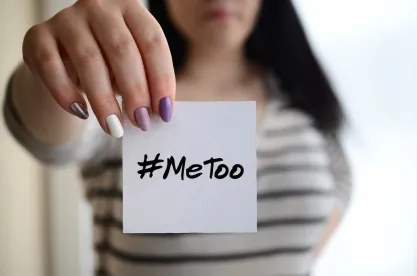The post-#MeToo reforms to New York State’s Human Rights Law, which expanded the anti-sexual harassment provisions, included a requirement that the state’s model policy, last issued in 2018, be reviewed and revised every four years. On January 12, 2023, the New York State Department of Labor (“NYSDOL”) published a Proposed Sexual Harassment Prevention Model Policy (“Proposed Model Policy”). The public has until February 11, 2023, to view and comment on the proposed revisions prior to a final version being adopted.
Since October 2018, New York State Labor Law has required employers to adopt written sexual harassment prevention policies, and the NYSDOL issued a model sexual harassment policy to assist employers in meeting their obligations. Now, the NYSDOL is proposing significant revisions to its model policy that would, among other things, introduce new sections, incorporate requirements from recent legislation, clarify standards, and provide greater detail to existing sections.
Key changes in the Proposed Model Policy about which employers should be aware include:
-
An expanded explanation of to whom the policy applies—that is, both employees and “covered individuals,” which includes non-employees such as independent contractors, vendors, gig workers, consultants, or anyone providing services in the workplace.
-
Relatedly, “covered individuals” have been added to those encouraged to report harassment.
-
An explanation that harassment need not be severe and pervasive to be illegal, consistent with the change to New York State’s legal standard adopted by legislative action in 2019.
-
An expanded discussion of what constitutes sexual harassment, including references to statutory language regarding inferior terms and conditions of employment, new examples of unlawful discriminatory behavior (including “sex stereotyping”), and a discussion of gender diversity. In addition, the policy uses the term “gender-based” instead of “sex.”
-
An updated “Retaliation” section that incorporates recent legislation that makes public disclosure of personnel files a form of retaliation. The section also highlights that an individual is protected from retaliation if they had a good faith belief of unlawful harassment, even if the alleged harassment does not ultimately rise to the level of a violation.
-
A new section on “Bystander Intervention” under which any employee is encouraged to report harassment (while supervisors or managers are required to).
-
Revisions to the “Complaints & Investigations of Sexual Harassment” section, adding language about “sensitivity” in handling complaints, and replacing a reference to a 30-day timeline to complete investigations with “as soon as possible.”
-
The section labeled “Legal Protections and External Remedies” adds the recently created, confidential state sexual harassment hotline number, and provides that complaints to NYS DHR can be completed online via computer or mobile device (and not just by downloading and completing a form to mail).
As with the current Model Policy, employers will have the option of either adopting the NYSDOL’s language or using a similar policy, once the Proposed Model Policy is finalized after the comment period ends. A tailored policy will still be required to meet or exceed the standards set forth by the NYSDOL version, which means that all New York employers will need to revisit their sexual harassment policies, once the NYSDOL adopts a final revision of the Proposed Model Policy. As of now, no changes have been proposed to the minimum standards document.
We will continue to monitor for developments, including whether there are further changes to Proposed Model Policy before its adoption by the NYSDOL.




 />i
/>i

